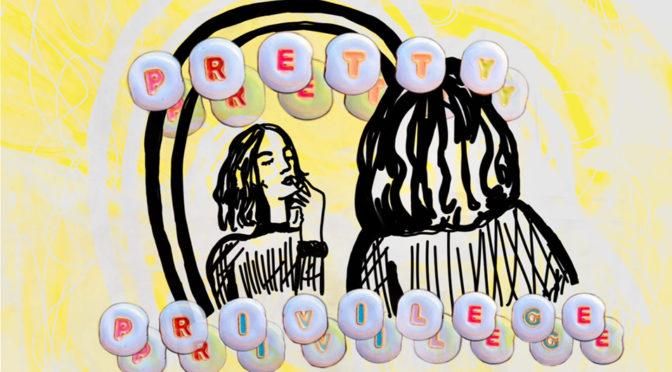Does being beautiful make your life easier? More interesting? Have a dramatic soundtrack or endless close-up camera angles? Hollywood obviously thinks it does. It doesn’t take watching more than a few movies or TV episodes to realize the entertainment industry is saturated with inhumanly gorgeous actors and actresses. Does this change how we as viewers judge their characters though? Today, we will be examining “pretty privilege” in our media.
What is pretty privilege? Well, it’s exactly what it sounds like. Characters can get away with more simply because the people who play them are pleasing to look at. The character can be cruel, selfish, callous and downright evil. Yet, these qualities seem more acceptable because the actor is just “too cute to really be that bad.”
Let’s look at this stereotype of beauty and its correspondence to goodness through a movie most of us have seen: “Sleeping Beauty.” The main protagonist is kind, talented and innocent. How do we know this? Because she’s beautiful. With her golden hair, pink lips and glittering eyes (plus her being referred to as “Sleeping Beauty”), it is not up for debate that the character is meant to be seen as lovely.
The main antagonist on the other hand is malicious and harsh. How do we know? Because she’s ugly. The character is drawn with an overly sharp and long chin and unsettling yellow eyes. It was not until the breathtaking Angelina Jolie took over this “antagonistic” role in the 2014 live-action film “Maleficent” that the character was redeemed as loyal and misunderstood.
There is clearly a learned coordination between perceptions of beauty and perceptions of goodness. Media coached us to assume the best of attractive characters and the worst of unattractive ones. How does this idea of pretty privilege apply to less obvious examples of media though?
To answer that, I will remind you of the once wildly popular musical TV show, “Glee.” In the show, two characters share a shocking similar backstory: Santana Lopez and David “Dave” Karofsky.
Both characters struggle with their sexualities in the show. Due to their insecurities about their sexualities, Santana and Dave each lash out and bully various other characters. Despite the similarities between the two, the fanbase tends to treat them considerably differently. Dave is treated with indifference or even hostility by most fans while Santana is widely regarded as a fan favorite.
One could argue this treatment is because Dave threatened serious physical violence against another character, Kurt, in season two. However, much of the fanbase’s aversion to Dave fanbase predates this threat. In addition, Santana has also threatened physical violence against multiple characters and even made another character bleed by hitting him repeatedly with a dodgeball after the game was over.
Both characters have the same drive behind their cruelty. Both characters display inclinations toward physical violence. Both characters are bullies. So, why is one loved and the other disliked? It could be because of how they look.
Max Adler, who plays Dave, is certainly not ugly but he isn’t depicted as the traditional Hollywood hunk either. Naya Rivera, who plays Santana, was known for her beauty. Would fans have liked Santana so much and forgiven her so easily if Naya had been average-looking or even unattractive? While there is no way to say for sure, I’m tempted to vote no.
Let’s look at an entirely different show to further explore pretty privilege in media: The crime comedy-drama series “Bones.” Just like in “Glee,” two characters stick out as having similar personalities that are perceived completely differently. Both characters, Oliver Wells and Rodolfo Fuentes are interns on the show who are incredibly brilliant but also incredibly arrogant.
Now, what makes these characters different? Rodolfo is portrayed by the handsome Ignacio Serricchio. The show and audience is well aware of Rodolfo’s status as a beautiful man. The other characters frequently comment on his attractiveness. Rodolfo even has a line where he blatantly states “I’m handsome.”
Oliver Wells, on the other hand, is played by Brian Klugman. Much like Alder, Klugman is not unattractive but is not depicted as extremely handsome the way Serrichho is.
Despite having similar arrogance and intelligence, fans significantly preferred Rodolfo to Oliver. Even the review website “Screen Rant” ranked Rodolfo two places ahead of Oliver in their “Bones: All of Brennan’s Interns, Ranked” article. Could this fan favoritism be because of pretty privilege?
We have learned from a young age to think favorably of attractive people so it’s no shocker that we’re often kinder to characters played by attractive actors. Next time you’re watching a show or movie, take a moment to think: Do I really like this character or do I just like the way they look? The answer may surprise you.

















